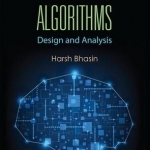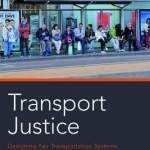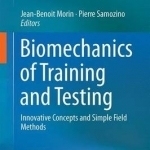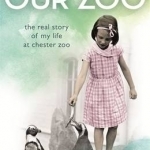
The Ultimate EU Test Book Assessment Centre Edition
Book
Facing the Assessment Centre, the final stage in selection competitions for permanent jobs in the EU...

Algorithms: Design and Analysis
Book
Algorithms: Design and Analysis of is a textbook designed for the undergraduate and postgraduate...
Palaeogeography and Palaeobiogeography: Biodiversity in Space and Time
Paul Upchurch, Alistair J. McGowan and Claire S. C. Slater
Book
Biogeography represents one of the most complex and challenging aspects of macroevolutionary...
Many people in Britain may have recently watched the drama series Our Zoo on BBC1 about the Mottershead family who moved to Oakfield, Upton in 1930 with the aim of building a zoo without bars. Based on a true story the drama over exaggerated the difficulties the family faced in developing what became to be the famous Chester Zoo. Until 2010 when TV producer Adam Kemp approached her, June Mottershead had never thought about making her history available to the public. As the truth had to be bent slightly for the television production with the removal of certain characters and added romance, and, of course, the laws preventing chimpanzees from being filmed, June Mottershead has penned the true story, also called Our Zoo, which is just as fascinating as what was shown on screen.
June was only four when she moved to Upton with her parents, grandparents, and her fourteen-year-old sister Muriel as well as a selection of animals. The BBC1 drama only showed up until the point that her father, George, had finally been given permission to build his zoo despite the petition against it. In the book, however, this occurs within the first few chapters and then continues on until June’s marriage to her husband Fred Williams in 1949. In fact the time period of the narrative jumps around depending on the animals or events that June is describing.
A large chunk of the book is focused on the effect the Second World War had on the zoo. As can be expected the rationings of vital products took its toll on the animals’ diets and, although the zoo never took a direct hit, the Liverpool blitz caused havoc by destroying the glass tanks in the aquarium. On the other hand, the amount of animals rapidly grew, as it was not just humans that became refugees during the war.
It was a delight to read about June’s relationships with some of the animals, particularly Mary the chimpanzee who was also June’s best friend as a child and behaved in a humanlike manner. Alas, as well as the happy moments there were the inevitable upsetting accounts of the deaths some of the animals, either from old age, illness or accidents.
While Our Zoo cannot be described as a novel, it neither has the feel of an autobiography. The conversational tone of the writing made it a pleasure to read and easy to visualize (admittedly watching the televised version had already provided a certain image).
This easy to read book is a strong recommendation for those who enjoyed the BBC adaptation and wish to find out what happened next. It does not matter if you have not watched the drama, as it is overall a fascinating story to read.
Many people in Britain may have recently watched the drama series <i>Our Zoo</i> on BBC1 about the Mottershead family who moved to Oakfield, Upton in 1930 with the aim of building a zoo without bars. Based on a true story the drama over exaggerated the difficulties the family faced in developing what became to be the famous Chester Zoo. Until 2010 when TV producer Adam Kemp approached her, June Mottershead had never thought about making her history available to the public. As the truth had to be bent slightly for the television production with the removal of certain characters and added romance, and, of course, the laws preventing chimpanzees from being filmed, June Mottershead has penned the true story, also called <i>Our Zoo</i>, which is just as fascinating as what was shown on screen.
June was only four when she moved to Upton with her parents, grandparents, and her fourteen-year-old sister Muriel as well as a selection of animals. The BBC1 drama only showed up until the point that her father, George, had finally been given permission to build his zoo despite the petition against it. In the book, however, this occurs within the first few chapters and then continues on until June’s marriage to her husband Fred Williams in 1949. In fact the time period of the narrative jumps around depending on the animals or events that June is describing.
A large chunk of the book is focused on the effect the Second World War had on the zoo. As can be expected the rationings of vital products took its toll on the animals’ diets and, although the zoo never took a direct hit, the Liverpool blitz caused havoc by destroying the glass tanks in the aquarium. On the other hand, the amount of animals rapidly grew, as it was not just humans that became refugees during the war.
It was a delight to read about June’s relationships with some of the animals, particularly Mary the chimpanzee who was also June’s best friend as a child and behaved in a humanlike manner. Alas, as well as the happy moments there were the inevitable upsetting accounts of the deaths some of the animals, either from old age, illness or accidents.
While <i>Our Zoo</i> cannot be described as a novel, it neither has the feel of an autobiography. The conversational tone of the writing made it a pleasure to read and easy to visualize (admittedly watching the televised version had already provided a certain image).
This easy to read book is a strong recommendation for those who enjoyed the BBC adaptation and wish to find out what happened next. It does not matter if you have not watched the drama, as it is overall a fascinating story to read.
Sophia (Bookwyrming Thoughts) (530 KP) rated The Casquette Girls in Books
Jan 23, 2020
Part One is a bit slow, with Adele coming back from Paris, reconstruction in the city after the hurricane, and the occasional unexplainable situation happening (aka dead people on the rise, and I don't mean zombies) but Part Two is when things really pick up.
Part Two and a bit of Part Three actually goes back to the past as Adele is reading her ancestor's diary, trying to figure out what happened in the early 1700s after being lead to a completely shut and by completely shut, I mean nailed in attic of the local convent. Of course, she's not lead to the diary until she accidentally "breaks" open a shutter of said convent and unleashes a threat to her entire town.
(I was sort of disappointed when the end of the diary was reached. *sigh*)
What's really neat is said threat is confined within a specific part of the city based on a curse from centuries ago it's usually either vampires or witches. If they are together, chances are there's a pack of werewolves running around or they're with others. Plus, everyone hates vampires by then, not that it isn't the case here.
The Casquette Girls was a neat read based on a hurricane, centering around vampires and witchcraft, although Alys really could have added in a translation of the many French words used (Italian was no problem for me). I wouldn't have felt as though I'm reading fragments by then, and I'm sure the translation guide would help other non-French speaking readers too!
<img border="0" src="http://1.bp.blogspot.com/-mvEgVOM_JGs/U3FfeZceS7I/AAAAAAAADQc/Omh5mPoZ6Gc/s1600/Translation_Please_.jpg"; height="320" width="301">
----------------------
Review copy provided by the author via Xpresso Book Tours
Original Rating: 4.5
This review and more can be found over at <a href="http://bookwyrming-thoughts.blogspot.com/2014/06/review-the-casquette-girls-by-alys-arden.html">Bookwyrming Thoughts</a>
<a href="http://bookwyrming-thoughts.blogspot.com/"><img src="http://4.bp.blogspot.com/-Gi5Rk5yLloA/UtliaUbdL3I/AAAAAAAACbE/J27z92_qrYU/s1600/Official+Banner.png"; /></a>
The Soccer Games and Drills Compendium: 35 Smart and Practical Games to Form Intelligent Players - for All Ages
Book
The Soccer Games and Drills Compendium is a comprehensive compilation of 350 realistic drills and...

Global Green Infrastructure: Lessons for Successful Policy-Making, Investment and Management
Book
Over the last decade research exploring green infrastructure planning has burgeoned. Transferable...

Transport Justice: Designing Fair Transportation Systems
Book
Transport Justice develops a new paradigm for transportation planning based on principles of...

Biomechanics of Training and Testing: Innovative Concepts and Simple Field Methods: 2017
Jean-Benoit Morin and Pierre Samozino
Book
This book presents an account of innovative methods and, for most of them, gives direct and...

